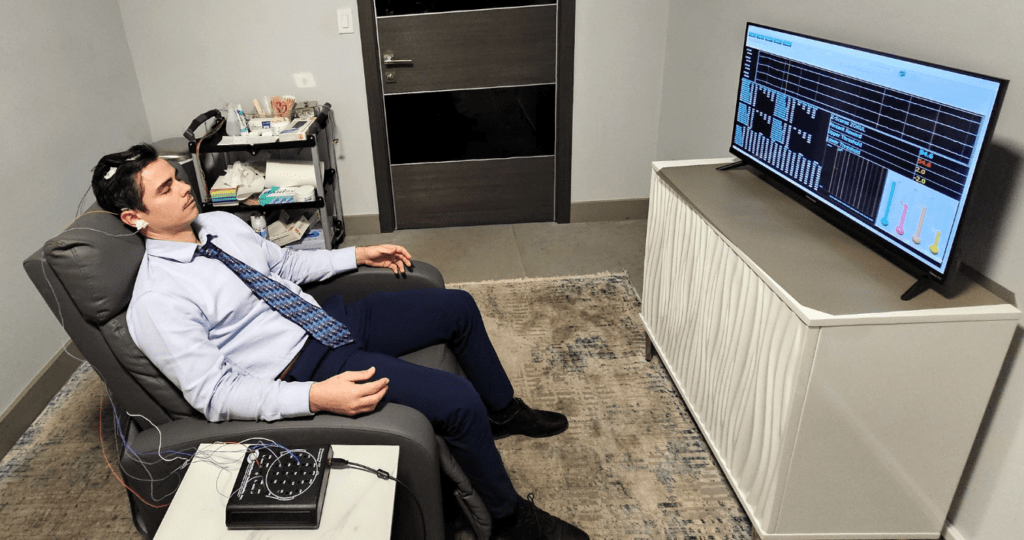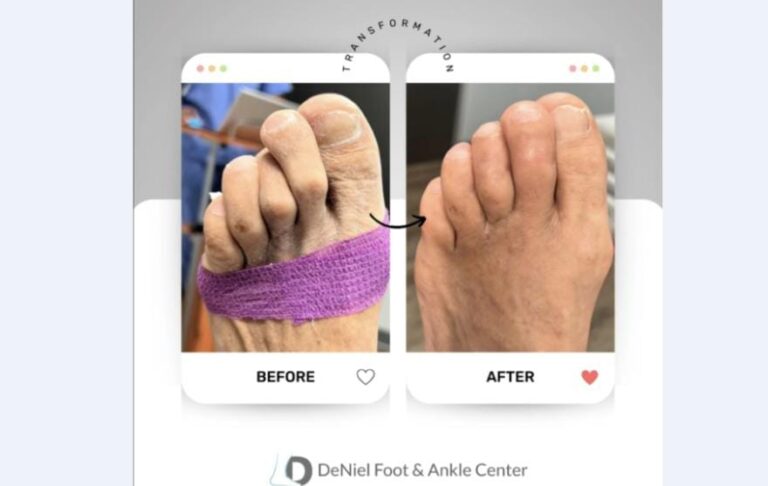Unlocking Neurofeedback and QEEG for Better Mental Health
As you consider the potential of neurofeedback and QEEG in enhancing mental health, imagine a world where your brain’s activity holds the key to revealing personalized treatment strategies. By harnessing the power of real-time brain wave monitoring and detailed neural analysis, individuals can take control of their mental well-being like never before. This innovative approach unveils doors to tailored interventions that target specific neural functions, promising a future where mental health care is revolutionized by the insights derived from your brain’s electrical signals.
Understanding Neurofeedback and QEEG
To understand the concepts of neurofeedback and quantitative electroencephalography (QEEG), it’s necessary to explore the intricate workings of the brain’s electrical activity. Brain wave patterns play an important role in cognitive enhancement through neurofeedback therapy. Neurofeedback involves real-time monitoring of brain wave activity and providing feedback to the individual to help regulate these patterns. This process aims to train the brain to self-regulate and enhance its functioning. Quantitative electroencephalography (QEEG) complements neurofeedback by providing a detailed analysis of brain wave patterns. It offers insights into the brain’s electrical activity, highlighting areas of overactivity or underactivity that may be contributing to cognitive issues. By utilizing QEEG data, practitioners can tailor neurofeedback protocols to target specific areas of the brain for best cognitive enhancement. Understanding these technologies allows individuals to actively participate in their mental health journey, fostering a sense of empowerment and control over their cognitive well-being. Through neurofeedback and QEEG, individuals can work towards improving brain function and achieving better mental health outcomes.
Benefits of Neurofeedback Therapy
Building upon the foundational understanding of neurofeedback and QEEG, the benefits of neurofeedback therapy emerge as a promising avenue for enhancing mental health. Neurofeedback therapy offers advantages in brainwave regulation, enabling individuals to gain control over their brain activity patterns. Through this form of biofeedback, individuals can learn to regulate their brainwaves, promoting a state of relaxation or focus as needed. This process can help individuals manage conditions such as anxiety, ADHD, and PTSD by training the brain to function more efficiently. Moreover, cognitive enhancement is a key benefit of neurofeedback therapy. By targeting specific brain regions and neural networks, individuals can improve cognitive functions such as attention, memory, and processing speed. Research indicates that neurofeedback can lead to lasting improvements in cognitive performance, which can have a significant impact on daily functioning and overall well-being. Overall, neurofeedback therapy holds promise for those seeking to optimize brain function and improve mental health outcomes.
Applications in Mental Health Care
In mental health care, the applications of neurofeedback and QEEG hold significant potential for improving diagnostic accuracy and treatment outcomes. Neurofeedback effectiveness refers to the ability of this therapy to train the brain to regulate its activity better, leading to enhanced mental well-being. By utilizing QEEG analysis, healthcare providers can gain valuable insights into the brain’s electrical activity patterns, aiding in the identification of specific neurological dysregulations associated with mental health disorders. Neurofeedback effectiveness is particularly notable in conditions such as ADHD, anxiety, depression, and PTSD. This therapy helps individuals learn to self-regulate their brain function, leading to reduced symptoms and improved cognitive performance. When combined with QEEG analysis, a more personalized approach to mental health treatment can be achieved. QEEG analysis provides objective data on brain function, allowing for tailored neurofeedback protocols that target the specific areas of dysregulation.
Personalized Treatment With QEEG
With QEEG analysis, personalized treatment plans can be developed based on objective data regarding an individual’s brain function. This approach allows for the creation of individualized protocols tailored to address specific neural patterns and dysfunctions. By utilizing QEEG, healthcare professionals can gain valuable insights into the brain’s activity and connectivity, leading to more accurate diagnostic precision and targeted interventions. QEEG provides a thorough assessment of brain activity by analyzing electrical impulses in different regions of the brain. This data is essential in identifying abnormal patterns that may be associated with mental health conditions. Through the use of advanced technology, QEEG can pinpoint areas of concern and guide the development of personalized treatment strategies. The integration of QEEG in mental health care not only enhances diagnostic precision but also improves the effectiveness of interventions. By creating personalized treatment plans based on objective brain data, individuals can receive targeted therapies that address their specific needs. This tailored approach ensures that interventions are more specific and yield better outcomes for individuals seeking help for mental health concerns.
Future of Brain-Driven Interventions
Given the advances in neurofeedback and QEEG technology, the future of brain-driven interventions is poised to revolutionize mental health treatment. Brainwave regulation, a key component of neurofeedback, allows for the precise targeting of specific brainwave patterns associated with different mental health conditions. Through real-time monitoring and feedback, individuals can learn to regulate their brainwaves, potentially leading to improved symptoms and overall well-being. Moreover, cognitive enhancement, another promising aspect of brain-driven interventions, aims to optimize cognitive functions such as attention, memory, and decision-making. By utilizing QEEG technology to map brain activity and identify areas for improvement, interventions can be tailored to enhance cognitive performance effectively. As research continues to uncover the complexities of the brain, the future holds great promise for personalized brain-driven interventions that address individual needs and promote mental health resilience. Embracing these advancements may lead to a new era of mental health care that prioritizes targeted, effective interventions based on brain activity and cognitive function.
Keep an eye for more latest news & updates on USA Upmagazine!






